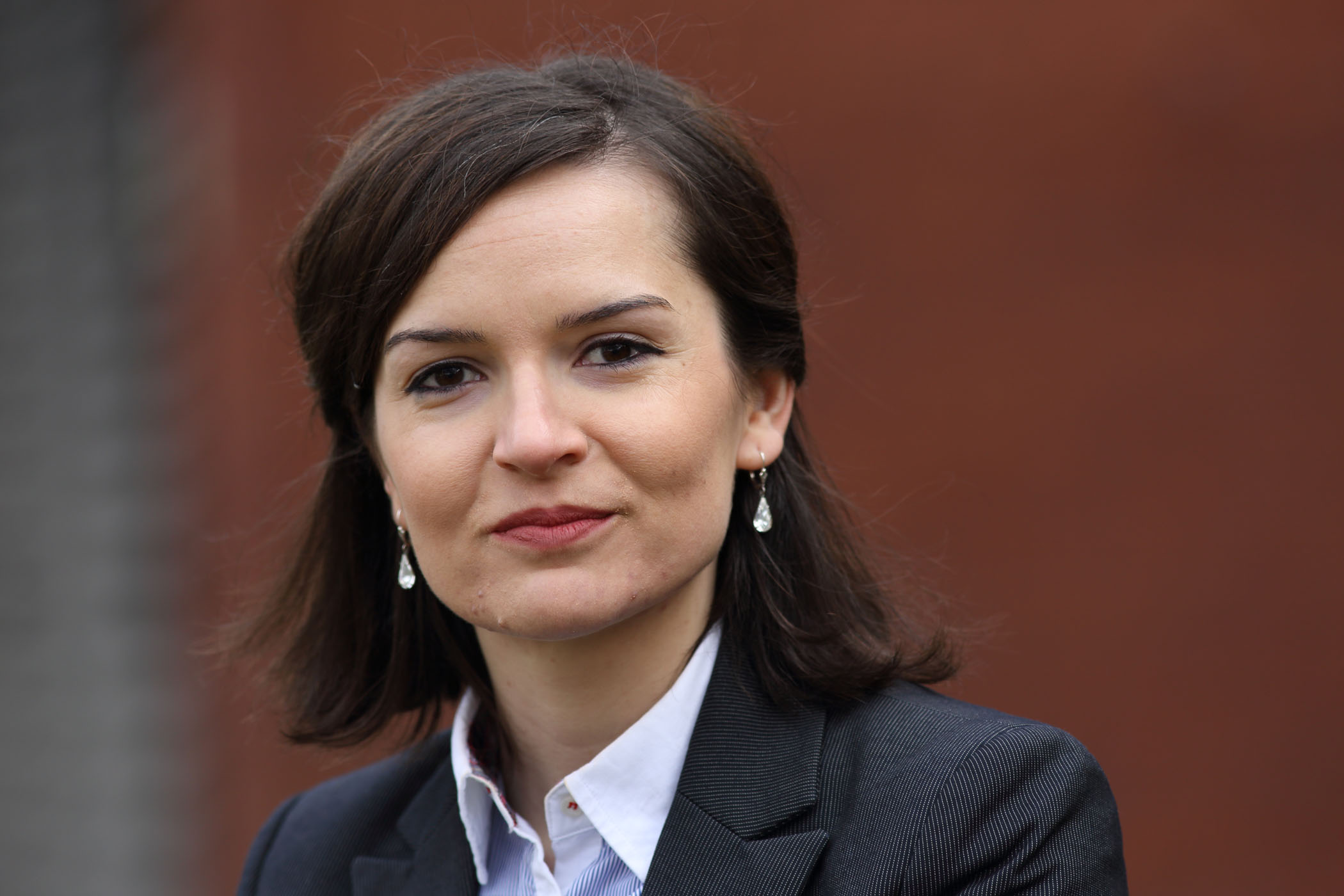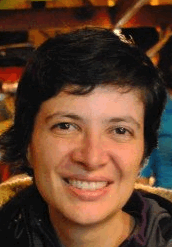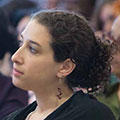2014-2015 Residential Fellows

Julia Dehm (Australia)
Julia Dehm (Australia)
Climate Justice or Carbon Governmentality: Law, Life, Limits and Growth in Crisis
Julia Dehm is a Ph.D. Candidate at Melbourne University Law School, and was a 2014 IGLP Workshop Participant. Among others, she works in the areas of environmental law, law and development and legal theory. She has worked for the Melbourne Sustainable Society Institute and was a member of the Steering Committee of the Activist Legal Rights Website project at the Fitzroy Legal Service. Julia’s most recent publication is ‘REDD faces all around’: Implementing reducing emissions from deforestation and forest degradation in Indonesia (Local-Global Journal, 2012).
Julia’s research engages with dominant international legal and policy responses to the climate crisis and presents the climate crisis as a critical challenge for the global community. Where collective failure to respond to climate change with effective and equitable policy will accentuate already existing structural inequalities the ecological crisis simultaneously presents an opportunity for rethinking and reimagining global planetary co-habitation. The climate crisis is not simply a scientific or a technical challenge but ultimately a political and ethical social problem in which law and legal responses have the capacity to play a critical role. Julia’s research examines legal responses to the climate crisis through the United Nations Framework on Climate Change (UNFCCC) and other transnational forums in order to ask pertinent questions about the adequacy and equity of these approaches. A fundamental concern of her research is the increased marketization of transnational environmental governance and the centrality of carbon emission trading schemes to international mitigation and adaptation measures and how such responses may foreclose possibilities for ‘environmental justice.’ Her doctoral thesis examines the social implications of a specific carbon offset scheme under the UNFCCC umbrella called Reducing Emissions from Deforestation and forest Degradation (REDD+) in order to investigate contemporary reconfigurations of imperial control by the global North over forested land and biological resources in the global South.

Tomaso Ferrando (Italy)
Tomaso Ferrando (Italy)
The Financialization of Global Agricultural Production: How Private Equity Funds, Private Development Funds and Pension Funds are changing the Global Food Chain
Tomaso Ferrando is a Ph.D. Candidate at Sciences Po Law School and has been an Italian barrister since 2011. He was also a 2012 IGLP Workshop Participant. During the last two years he has been a visiting researcher at Universidade de São Paulo (Commerce Law Department) and the University of Cape Town (Public Law Department). Tomaso holds a Master of Science in Comparative Law, Economics and Finance from the International University College of Turin, and has been a visiting researcher at both the law and anthropology departments of UC Berkeley.
In 2010 he worked as a pro bono lawyer for Racimos de Ungurahui, a Peruvian NGO specialized in providing legal support to local communities affected by development projects and resources extraction. Since that time he has cooperated with local and international NGOs dealing with resource-related large-scale investments, including Greenpeace and Action Aid. When he wears the academic hat, Tomaso takes advantage of his multidisciplinary background to refuse the rigid separation between legal areas, in particular the public-private distinction that occupies Western legal thought and teaching.
Tomaso’s doctoral research project starts from the assumption that any critical analysis of global value chains must reckon with the “increasing role of financial motives, financial markets, financial actors and financial institutions in the operation of the domestic and international economies.” As such, legal scholars should analyze the interplay of neo-liberalism, legal globalization and financialization both in terms of their interconnection and in terms of the use of law as a privileged proxy through which the expansion of finance, the internationalization of capital, and the globalization of markets are achieved. During his time as an IGLP Fellow, Tomaso plans to study the increasing financialization of the food regime as an ongoing process with multiple socio-economic implications. In particular, his research aims to determine the role of law in both favoring and constraining the consolidation and worldwide reach of finance within the food Global Production Network. He will focus on three different manifestations of the financialization of the food regime, each characterized by peculiar legal aspects, and relatively underestimated by the general debate: the financialization of agricultural development; the direct involvement of private funds in the food production system; and the role of institutional investors in the global food regime.

Maja Savevska (Macedonia)
Maja Savevska (Macedonia)
A Polanyian Critique of the Political Economy of the European Union
Maja Savevska is a Ph.D. Candidate at the GEM PhD School, Erasmus Mundus Joint Doctorate on Globalization, EU and Multilateralism, where she was awarded a full scholarship by the European Commission. She was also a 2014 IGLP Workshop Participant. Her mobility program includes holding simultaneous registrations at the University of Warwick and the Université Libre de Bruxelles (ULB).
She received her undergraduate training in political science from Ss. Cyril and Methodius University, Skopje. Maja received a full scholarship from the Open Society Institute to participate in an exchange program at the University of Washington Seattle, where she completed a minor in International Relations. She completed an M.Sc. in Global Governance and Diplomacy at the University of Oxford, where she was awarded the Open Society Institute/Foreign and Commonwealth Office Chevening scholarship. Her experience includes TA work at the Univerité Libre de Bruxelles and Humboldt University and extensive NGO work in Macedonia.
Maja’s research interests fall within the remit of critical and heterodox political economy. Her project offers an interdisciplinary intervention that draws on the canonical texts of Karl Polanyi and the burgeoning Polanyian literature. Maja’s main object of inquiry is the morphology of the contradictions that underpin the socio-economic transformation of the European Union. She seeks to juxtapose the disembedding and embedding tendencies of this transformation. First, she is concerned with excavating the self-regulating market logic inscribed in the EU edifice by looking at historical development across three policy fields: competition, financial integration and education, and also by appraising the post-crisis macroeconomic reforms instigated by the Six-Pack, the Two-Pack, the Fiscal Treaty and the Euro-Plus Pact. She argues that the latter represent a missed opportunity for a U-turn in the course of competitive austerity, i.e. a lost kairos. This part of her research aims to problematize the policy solutions implemented in the aftermath of the Great Recession, which are predicated on a crisis narrative that entrenches the monetary orthodoxy. Second, Maja endeavors to examine emerging socio-environmental legislation that, despite its protective invocation, falls short of embedding the economy because it is predicated on deepened commodification. In doing so, she recuperates a critical Polanyian reading that highlights the unresolved ambiguities within these supposedly protective dynamics.

Lina M. Céspedes-Baez (Colombia)
Lina M. Céspedes-Baez (Colombia)
Idealized Women, Idealized Harms: Governance Feminism and the Narrowing of Women’s Experiences in Colombia’s Armed Conflict
Lina M. Céspedes-Baez is a Colombian lawyer, currently pursuing her S.J.D. degree at the James E. Beasley School of Law, Temple University as a Fulbright Scholar. Her research has focused on the interactions between private law, international law, human rights and gender. Lina received her law degree from Universidad del Rosario (Colombia). She has a specialized degree in tax law from Universidad del Rosario, a Masters in Gender Studies from Universidad Nacional de Colombia, and an LL.M. with a concentration in international law from Cardozo School of Law, Yeshiva University. She has been a law professor at Universidad del Rosario since 2005, where she teaches Obligations (Obligaciones), Sources of Obligations (Fuentes de las Obligaciones), and Legal Theory, and where she has been a member of the university’s Democracy and Justice Research Group since 2011. She is currently part of the Colombian Observatory of Rural Real Property Restitution and Regulation (Observatorio de Restitución y Regulación de Derechos de Propiedad Agraria), an academic initiative among Colombian universities and scholars to monitor and conduct research about the implementation of land restitution measures approved by the Colombian government in 2011 to redress harms to victims of Colombia’s internal armed conflict.
Lina’s research explores the impact the theoretical body of radical feminist scholarship has had on the identification, understanding and management of harms women face in the Colombian armed conflict and in transitional justice initiatives in Colombia and other post-conflict settings. She is interested in how radical feminism has narrowed the scope for understanding what constitutes gender-based violence in conflict. Her work explores how radical feminism has limited this understanding to sexual violence and related offenses, and how the overarching employment of the sexual domination matrix is used to explain the full range of harm women experience in this setting. In particular, Lina’s project focuses on how the radical feminist narrative has been deployed in the context of women’s land deprivation and massive displacement in the Colombian conflict, and advances alternative explanations to comprehend this phenomenon through the exploration of the intersection between feminism, theories of property and transitional justice.

Arnulf Becker (Chile/United States)
Arnulf Becker (Chile/United States)
Arnulf Becker (Chile/United States) Arnulf is currently a Visiting Faculty member at the Watson Institute for International Relations at Brown University. Arnulf received his S.J.D. from Harvard Law School. His areas of expertise include public international law, laws of war, the history of international law, comparative law and international legal theory. He has been a lecturer in public international law at King’s College London and a Pembroke Center Post-doctoral Fellow at Brown University. His research traces the global intellectual history of international law focusing on the role non-Western international lawyers have played in the construction of the international legal order between the second half of the nineteenth century and the first half of the twentieth century. His forthcoming book, Mestizo International Law: A Global Intellectual History, 1842–1933, will be published by Cambridge University Press.

Zinaida Miller (United States)
Zinaida Miller (United States)
Zinaida Miller (United States) is a doctoral Candidate in International Relations at The Fletcher School, Tufts University. She joins the IGLP again this year, after serving as a Residential Doctoral Fellow from 2012-14. Her work examines the law and policy of post-conflict reconstruction, focusing on the interplay between ideas and institutions in the fields of transitional justice, state- and peacebuilding, human rights, and humanitarian aid. Using Palestine and Rwanda as case studies, her dissertation maps the allocation of power and authority among national and international actors in the aftermath of conflict, the ways in which ideas about how to reconstruct states both influence and are altered by institutionalization on the ground, and the effects of post-conflict discourses on resistance and political struggle.
This work builds upon her previous studies of transitional justice, which examined the field’s systematic occlusion of economic inequality and structural violence. Her publications include Perils of Parity: Palestine’s Permanent Transition (Cornell International Law Journal, forthcoming 2014) and Effects of Invisibility: In Search of the ‘Economic’ in Transitional Justice (International Journal of Transitional Justice, 2008). She holds a B.A. from Brown University, a Masters in Law and Diplomacy from The Fletcher School, and a J.D. from Harvard Law School.